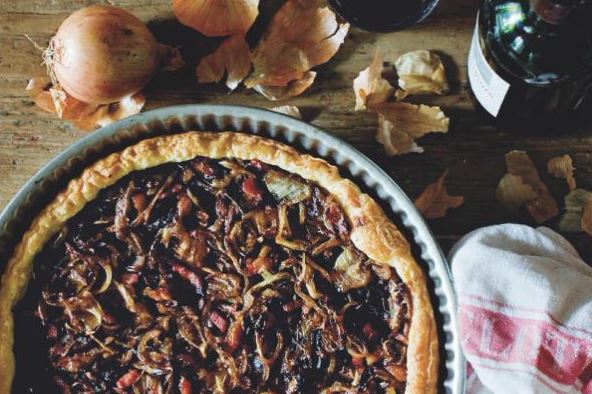20 reasons why we'll all return to France when this is finally over
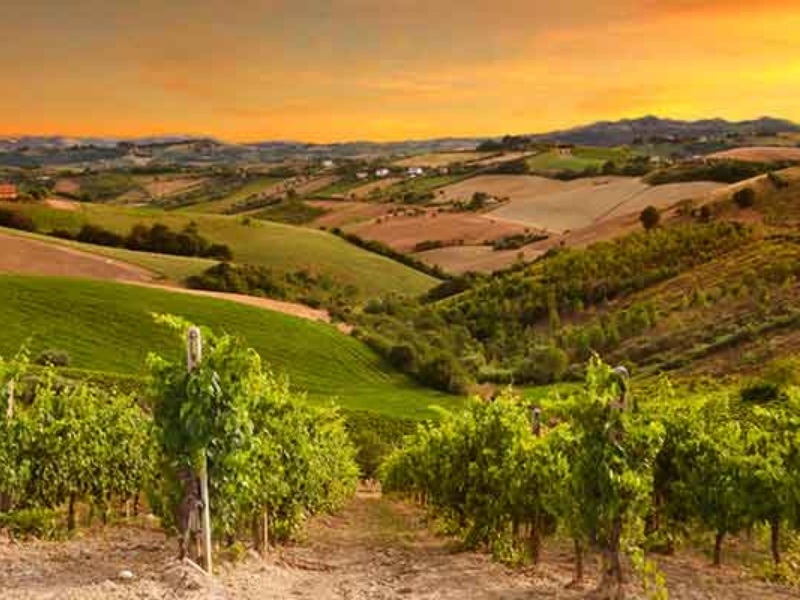
This can’t go on forever. Let’s pretend as much, anyway. What then? We’ll need to stretch our legs. Where? France, obviously. Why? It’s closer than anywhere else (bar Eire). Easier to get to. And it’s where we always go. We may think the French are perfidious, arrogant and oddly besotted with Johnny Hallyday, but we can’t stay out of their country. Britons make some 13 million visits there every year. We’re their number one customers. And we doubtless will be again when the virus finally b*****s off. Here are a few more reasons:
1. Eating
I’m not going to say that French food is the best in the world (though it is) because every time I do so, below-the-line commenters steam with apoplexy and, right now, our great nation has quite enough health problems on its hands. What I will say is that France lends food more seriousness, even dignity. The recently-departed chef Michel Roux put it best: when the French say “dinner is served”, the British are yelling “grub’s up”. Being good at food is rooted in the peasantry and rises through the ranks to participate in every Frenchman’s self-image. They spend more time at table – 2h11 minutes every day – than anyone else. (We’re 21st, at 1h18.) You might find, on hols that that’s an underestimate.
2. Bonjour M’sieur-dame
Depriving the French of all that hand shaking and kissing has rendered them rudderless on social occasions. Good job there aren’t any, then. But the formal politeness will return, opening up a breathing space of mutual respect apparently lost in Britain to ambient mateyness. Older Britons (have I introduced myself?) appreciate this. We know that it doesn’t mean the French necessarily like one another. It’s only the adherence to formal norms which stops them tearing fellow citizens apart. That said, “Bonjour, monsieur”, certainly trumps “A’reet, mate?” in the global scheme of things.
3. Pre-history
Stone-age man was dim – spent millennia perfecting biface tools – but he knew where he was well off. That was France, full of rivers and forests, fish and game, plus caves which, given the abundance of food, he had the leisure to decorate. And my, was he a dab hand at painting. The lions in the Chauvet cave in the Ardèche could have been done by a talented person last Thursday, rather than 36,000 years ago. Check this also at Lascaux IV in the Dordogne or Pech Merle in the Lot. Very few of us are as gifted as cavemen.
4. Villages
French villages remain, in general, complete unto themselves. OK, there’s a trend to concentration, but real villages retain mayors, councils and a sense of independent identity. They should also have 75% of the following: a butcher’s, a grocer’s and a baker’s, a market, a pétanque pitch, a bar-tabac boasting lottery tickets, old blokes playing cards and photos of the village soccer team last time it won anything, when moustaches were part of the kit, c. 1974. Also a church where Joan of Arc once prayed. She got around. No wonder we’re happy there.
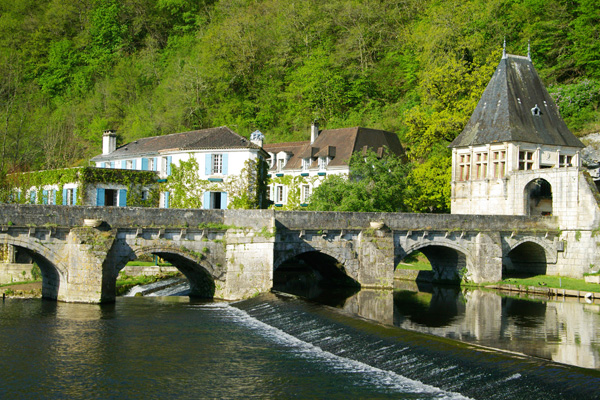
5. Wine
If you want just wine, then you go to Asda like everyone else. In France, you go wine touring not merely for wine itself but also as a passport to the land, jollity and, especially, wine people. Some are arrogant. Some are mad. But most are first-rate, even when talking about “ethereal nuances of taste,” as they will. They give wine a story and a human face. Handily, this makes opening a bottle back in Basingstoke a cultural event – profoundly cultural, if it’s before 9.30am.
6. Festivals
From late spring through autumn, festivals bloom throughout France. There are the big ones – drama in Avignon, opera at Aix, rock at the Vieilles Charrues in Carhaix and jazz all over the place. Then there are small ones, in every village. Ours lasts five days, has bulls careering through the streets, galloping horses, rock bands, communal meals and the opportunity to extend the aperitif hour through to 3am. Then there are odd ones, not least the Liars’ Festival in Moncrabeau, Gascony. Folk compete to tell the best tall story in what is, against stiff competition, the “liars’ capital of France”. It has, on display near the stage, the preserved skull of the infant Henry IV, before he became king.
7. Culture
France! Crikey, the culture! Of course, it’s great. The Loire châteaux. Mont St Michel. Daft Punk. All those museums. Then there’s Paris. The Louvre. Comédie Française. The capital assuredly has more contemporary dancers than grocers. All wonderful. Unless it’s not. Unless you’re bored to bits by châteaux and Egyptian sarcophagi. I’d wager some 60% of visitors tramping round the galleries or the 15th-century salons all want to be somewhere else. They’ll be doing the Let-Me-Out -Of-This-F*****-Museum shuffle. We’ve all seen it. The good news is that museums, castles and Impressionist art are not compulsory. No-one’s coming to your hotel with a gun. You may swerve and cut straight to the beer.
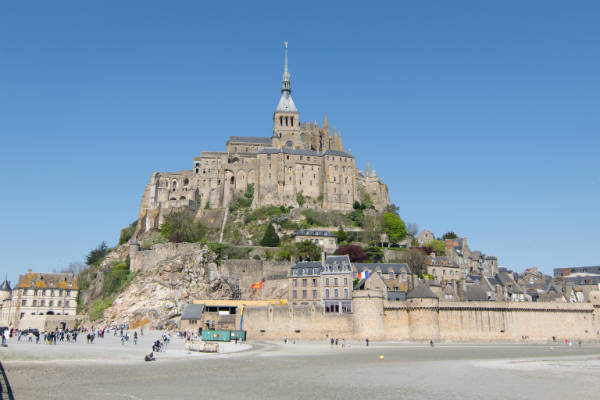
8. Apéritifs
A useful invention, transforming “drinks before the meal (dbtm)” into an imperative of the timetable. Unlike dbtm, the French aperitif may be a social occasion in itself, not merely a prelude. So with new acquaintances, you might meet without committing to the full three courses. If they wish to talk about their trip to Machu Picchu, their house renovation or how they found God, you call a halt after a couple of glasses. If not, carry on. Ensure supplies of cheese and charcuterie.
9. Markets
Cue renewed apoplexy: France has the best in Europe. They’re everywhere, from four or five stalls in small villages to 450 over a mile-and-a-quarter in Arles. And they’re not necessarily statements of ideology (organic, vegan, locavore and all the b***y rest of them), just what France has been doing for 1,000 years or more. Their rounded forms, high hues and juicy fertility fuel quotidian sensuality. Locals touch, stroke and squeeze. Across there, the fish are displayed as if the sea had just receded to reveal them. There’s a complete civilisation of cheeses and, over on the meat in Aix, a nun cleavering convent chickens to order. Your morning’s booked solid.
10. Beaches
There are long beaches for sand-yachting in the north, cliffs and creeks in Brittany, rollers for surfing down the Atlantic and all the requisites for farniente along the Med. Everyone knows that, so let’s move on. The food. In Britain, seaside fare is fish and chips which – it’s about time this was said – are slabs of grease accompanied by slivers of grease, rendering diners instantly obese. Compare and contrast with a seafood platter: oysters, mussels, cockles, whelks, clams, and scallops, among much else, followed by John Dory, sea-bass or turbot. Give up?

11. Grandeur
The Champs Elysées, Arc de Triomphe, Versailles. France loves the grand public gesture. They have no choice. They need a myth of grandeur to keep France under control and working, so they centralise everything and ram home the message with magnificence. This Project France co-opts most of the people most of the time. Until it doesn’t, and they start tearing up flagstones. But it’s splendid to look at when we can.
12. Art
Art-wise, there’s little to choose between Paris and London. But, in the provinces, France is fuller – whether it be the Impressionists across Normandy, the outposts of the Louvre and Pompidou in Lens and Metz, the cacophony of modern artists on the Côte d’Azur or, in Burgundy at Saulieu, the tiny François Pompon museum. Pompon was the greatest animal sculptor possibly ever. His museum in Saulieu is full of treasure, though his finest work, the Polar Bear, isn’t there. It’s at the Musée-d’Orsay in Paris. My family gave me a small model of it not long ago. I wish you such happiness.
13. Diversity
France is all Europe in one country. You may go from sauerkraut and German accents in Alsace to Spanish and Italian overflows in the south, by way of Celts in Brittany and the most French of French in the Loire valley. And all this is backed by every sort of landscape: mountains, great rivers, lakes, coast and forest covering 28% of the landscape. Plus there’s hardly anyone about. For roughly the same population, France is twice the size of the UK. So you get lost. I did, after a day’s walking in the Massif Central. I came upon a farmer. “Where am I?” I asked. He paused a moment. “Right here,” he said.
14. Sport
Obviously, the indefatigable may cycle, hike, ride white Camargue horses, climb, surf, canoe the Dordogne and swim wherever they damned well want. But then there are the more specifically French sports. Bullrunning is best left to the under-25s. Others might play “la balle au tambourin” which is luxury-length tennis played with tambourine-type things instead of rackets. Or Basque pelota. Or pétanque. Never play any of these for money. Locals will wipe you out. Meanwhile, in far northern France, they developed many sports as respite from mining. One involves placing an artificial bird at the top of a damned big pole, then firing arrows at it. “What do you call this?” I asked a smiling Northern chap. “Ice hockey,” he said. “Ah,” I said.
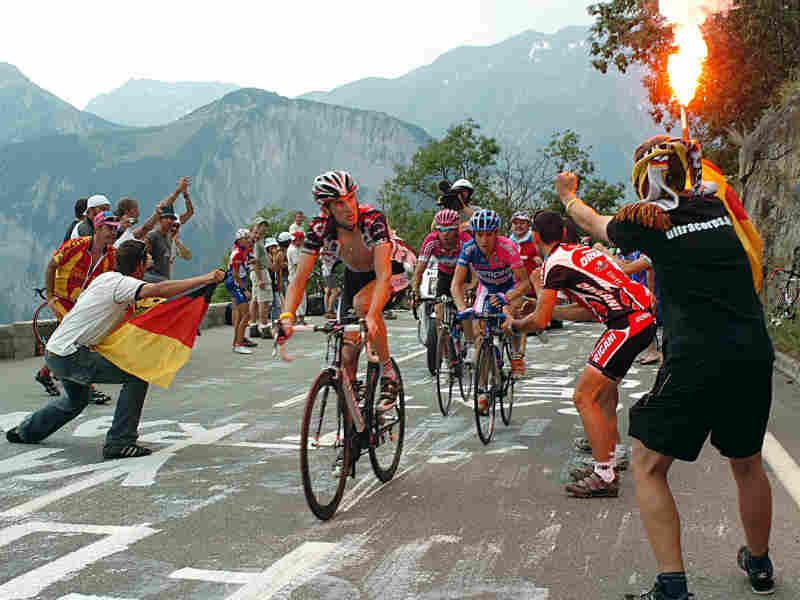
15. Armageddon
Nightlife is fine in both countries – except that it starts and ends later in France, and less often descends to cataclysm. Just before lockdown, my wife and I were out in Montpellier. We’d had dinner and were strolling the centre for a final drink. It was about 23h00 and – here’s the thing – everybody was out, families and young couples through old people like us. There was a murmur of civilised activity about late-evening café terraces. There were no clumps of drunks bouncing off walls, no youngsters vomiting, no girls falling into flower tubs with skirts round their waists. No excitement at all, really.
16. Rules
The French are ambivalent about rules. They admire the embrace of their big bossy state. When they deem times are tough, as right now, they mainly obey. But, in non-tough times, they’ll smoke under No Smoking signs, set fire to city centres because they are Yellow Vests and have brains of onion soup, and release semi-wild bulls through narrow streets. You may, in short, quite easily get beyond the writ of the Republic. For those used to micro-managed lives, this is liberating.
17. The French like us
Obviously, we get on one another’s nerves – that’s what neighbours are for – and we spent 1,000 years fighting. But, Brexit apart, we’re mainly on the same side these days, and we fascinate the French as no other nation does. We have them puzzled. We’re both a nation of stiff upper-lipped nobles ruled by Her Gracious Majesty and a bunch of bare-chested yobs excited by drink, soccer violence and stabbings. And then we send them superior rock music, irony and British humour (“Montee Peeton!”), pictures of princes and princesses, Burberry jackets, Midsomer Murders, and pickle. A Briton in France excites slightly perplexed smiles. Take advantage.

18. It’s nearby
And the nearest bit is terrific, starting with a grand coast. Downs, heath and open farmland roll this way and that, sweeping grandly to the Caps Blanc and Gris Nez. You drive up and the wind blows the bloody doors off. Seaside towns nestling in the folds – Ambleteuse, Wiméreux – have no idea how attractive their modesty makes them. Boulogne suited Dickens (“as good a place as I know”) while, inland, there’s the Créquoise valley which runs out of the 21st-century back to better times of cows and wildflowers. At Azincourt (“Agincourt”, to Shakespeare) the recently-overhauled Medieval History Museum is entirely splendid. And Montreuil is where you take those (they are legion) who claim French food is now c**p. The abundance of food shops and restaurants will put them right. All this, under an hour from Calais.
19. War
Times are tough in spring 2020, but they have been tougher – and near enough to Calais, too. You’re not long over the Channel before coming across war cemeteries, their acreages of white crosses telling of the tens of thousands of men – fathers, sons, brothers, husbands – who gave everything. In Neuville-St-Vaast cemetery, you read legends like the one on the tomb of Private H.Lynch of the Durham Light Infantry: "Ever remembered by your loving wife Annie and daughter Hannah" and you're at the heart of the matter. Monuments and museums abound. You may walk battlefields. You’ll never be able to re-create the terror experienced by the good guys on, say, the Somme or, 28 years later, in Normandy during and after D-Day. But these fellows, and their families, demand that we travel to honour them for as long as we have a free nation. The contrary would be both unthinkable.
20. That’s not enough?
Written by Anthony Peregrine and published in the Telegraph




